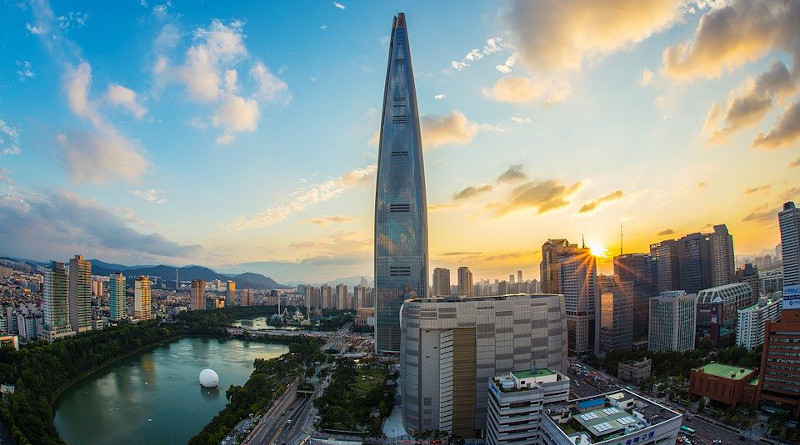Judicial Independence In South Korea Revisited – Analysis
By Marie Seong-Hak Kim*
There is a maxim that like cases should be treated alike. The public’s trust in the judiciary suffers when court rulings lack consistency. Several recent judicial decisions in South Korea are of interest in this regard.
In January 2021, the Seoul Central District Court held that Korean ‘comfort women’ who were subjected to sexual servitude in Japanese military brothels during the Second World War were entitled to restitution from the Japanese government. It ruled that the international law principle of state immunity did not apply to egregious violations of human rights.
In a lawsuit brought by a different group of ‘comfort women’ three months later, the same court — presided over by a different judge — dismissed the case. It held that the sovereign nation of Japan was shielded from lawsuits in foreign courts and South Korea had no jurisdiction.
In June 2021, the Seoul Central District Court rejected a claim by former wartime labourers against 16 Japanese companies, finding that treaty agreements had settled colonial compensation issues. This was a ruling that went against the judgments of the Supreme Court in 2018, in which the court ordered two Japanese corporations to pay damages to Korean labourers who were forced to work for them. South Korea is a civil law jurisdiction and case law is not a source of law, but decisions of the highest court are jurisprudence constante with de facto force as binding precedents. The fact that a court of first instance openly departed from the Supreme Court’s reasoning sent out shock waves. The plaintiffs have appealed, so a higher court will have to straighten things out.
Turning to a different issue, in March 2021, the Seoul Central District Court rendered guilty verdicts to a pair of defendant judges. The case was part of an alleged judicial power abuse scandal, in which 14 former and sitting judges were indicted. This decision was notable because all other judges had thus far been acquitted by different benches, which found that the defendants’ actions did not constitute an abuse of authority punishable under the Criminal Code.
These contradictory judgments are, apart from the puzzlement they generated among the public and legal circles, a sign of polarised courts. Some suspected various political factors dictated judicial reasoning. In fact, the colonial compensation cases that drew international attention have uncanny connections with the judicial abuse of power cases that remain little known outside South Korea.
The left-leaning South Korean President Moon Jae-in came to power in 2017 after the impeachment of former president Park Geun-hye of the conservative party. She was convicted of corruption and other charges and is serving a 20-year sentence. The former Supreme Court chief justice was prosecuted in early 2019 for attempting to delay the Supreme Court verdicts on the forced labour cases. The mass indictment of the judges was partly grounded in the accusation that they colluded with the court leadership under the previous administration. The trial of the disgraced chief justice is still in progress.
These developments highlight different types of threats to judicial independence. The most common danger comes from the political branch. In 1973 and 1980, several Supreme Court justices defied regime wishes and were summarily dismissed from the court. Another danger seems to arise of late, this time from within the court. Like the rest of society, the South Korean judiciary is sharply divided. The discordant court rulings reflect the growing politicisation of the court, which threatens to invite outside interferences. The rhetoric of participatory democracy can impose a burden on judges as well.
Before the country’s democratisation in 1987, judges in general adhered to the principle of judicial restraint and preferred narrow interpretations of the constitution and laws. Their apparent inability to effectively protect citizens’ political and civil rights has been pointed out. Yet the idea that judges may best fulfil judicial duty at a distance from politics deserves a fresh look.
The Supreme Court decisions on forced labourers sent South Korea–Japan relations into a free fall. The South Korean government has so far declined to intervene on the grounds of the separation of powers. But the judicial cacophony in 2021 amply shows that bilateral disputes should be resolved by diplomatic tact, not judicial fiat. It took district court judges to say that much.
In the midst of widespread partisan politics, the importance of judicial apoliticism resonates today. When courts are increasingly expected to address public policy questions as well as international controversies, judges would do well to preserve the virtue of judicial modesty — deciding cases in accordance with the established law.
Judicial independence and the depoliticisation of judges are two sides of the same coin. At a minimum, parties deserve to know that the outcome of their case is more than the luck of the draw, dependent on which judge presides over their case.
*About the author: Marie Seong-Hak Kim is Professor of History at St Cloud State University, Minnesota, and Attorney at Law. She is the author of Constitutional Transition and the Travail of Judges: The Courts of South Korea (Cambridge University Press, 2019).
Source: This article was published by East Asia Forum

